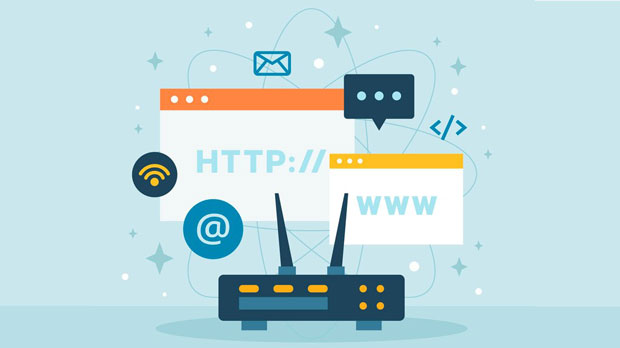Proxy6 and IPv4 proxies serve similar functions in online privacy and security, but their configuration complexity varies. Understanding how these proxies differ in setup is essential for businesses or individuals seeking efficient, secure, and cost-effective proxy solutions. While IPv4 proxies have long been a standard choice, Proxy6, with its unique architecture and offerings, requires a more specific approach for proper configuration. This article aims to explore the differences in configuration difficulty between Proxy6 and IPv4 proxies, examining the technical aspects, use cases, and factors that influence their complexity. By the end, readers will gain a clear understanding of how to navigate the setup processes of both options for optimal performance. Introduction to Proxy6 and IPv4 ProxiesBefore diving into the comparison of configuration difficulty, it's important to understand the basic nature of Proxy6 and IPv4 proxies. IPv4 proxies use the traditional Internet Protocol (IP) address format, which consists of four sets of numbers separated by periods (e.g., 192.168.1.1). These proxies are commonly used for tasks such as web scraping, accessing geo-blocked content, and enhancing privacy.On the other hand, Proxy6 refers to a specific type of proxy service that can offer advantages like anonymity, bypassing restrictions, and maintaining a high level of security. Proxy6 may provide both IPv4 and IPv6 proxy options, but it introduces additional configuration nuances due to its diverse offerings and advanced features.Understanding Configuration Complexity in Proxy6 and IPv4IPv4 Proxy ConfigurationIPv4 proxies are relatively easier to configure, primarily because they follow a traditional IP address format. Users can simply input the proxy ip and port into their preferred software or device settings to enable the proxy. The configuration process typically involves selecting a proxy type (HTTP, SOCKS, etc.), entering the proxy server's IP address, and providing any necessary authentication credentials.The simplicity of IPv4 proxy setup has made it the go-to choice for most users. As long as the server is running and the connection is stable, there is little to no technical expertise required to get started.Proxy6 ConfigurationProxy6, in contrast, can involve a higher level of complexity. Although Proxy6 also offers IPv4 proxies, its emphasis on security, anonymity, and bypassing restrictions means that its configuration process may be more intricate. Users often need to deal with more advanced settings such as choosing between different proxy types, understanding various authentication methods, and configuring rotation policies.One of the major aspects of Proxy6 configuration involves the use of rotating proxies. This requires setting up a system that automatically switches between different IP addresses at regular intervals, providing increased anonymity and reducing the risk of detection by websites. Additionally, Proxy6 may involve IPv6 proxies, which come with their own set of challenges due to the relatively new nature of IPv6 and the limited support for IPv6 by some applications and services.Factors Influencing Configuration DifficultyProxy TypeThe type of proxy being used can significantly affect the complexity of configuration. For example, Proxy6 might offer advanced proxy types like residential proxies, which can have more sophisticated configuration requirements due to their unique characteristics. These proxies are often used to mimic real user behavior, making them more difficult to detect by websites but requiring more detailed setup and maintenance.In contrast, standard IPv4 proxies, while also offering various types such as HTTP or SOCKS proxies, are less likely to require such in-depth configuration for basic use cases. As such, users may find IPv4 proxies more straightforward for tasks that do not require high levels of anonymity or security.Authentication and Security SettingsAnother factor that contributes to the configuration complexity is the level of security and authentication required. Proxy6 often provides robust security features, such as SSL encryption, IP whitelisting, and username/password authentication. These features require users to configure their systems accordingly, and failure to do so correctly can result in connection errors or even security vulnerabilities.In comparison, IPv4 proxies, especially the more basic ones, may not offer as advanced security options. While they still provide some level of security, such as encryption, the authentication requirements are often simpler. As a result, users may find IPv4 proxy setups more accessible if they do not require complex security measures.Integration with Other SystemsWhen using Proxy6, integrating the proxy service with other systems can be more challenging due to its versatile functionality. For example, users may need to configure their proxies for specific software or platforms, which may require additional steps such as modifying system settings or using API integrations. This process can involve technical expertise and attention to detail to ensure that the proxy operates correctly across all systems.IPv4 proxies, while still offering integration capabilities, tend to be more standardized and compatible with a wider range of software and platforms. This compatibility can reduce the configuration effort required, making IPv4 proxies a more attractive option for users who need a simple, plug-and-play solution.Scalability and MaintenanceScaling a proxy solution is another important factor when considering configuration difficulty. Proxy6, with its advanced features like rotating proxies and geo-targeted IPs, offers more options for users looking to scale their operations. However, managing a large number of rotating proxies requires meticulous configuration, as users must ensure that the rotation happens smoothly without disrupting ongoing tasks. Moreover, keeping track of IP addresses and ensuring they are used efficiently adds another layer of complexity.On the other hand, IPv4 proxies, especially static ones, are generally easier to scale because they involve fewer moving parts. Users can simply add more proxies as needed and maintain a consistent configuration across all of them. This makes IPv4 proxies more suitable for smaller-scale operations or users with less technical expertise.Conclusion: Which Proxy is Easier to Configure?In conclusion, while both Proxy6 and IPv4 proxies offer valuable benefits in terms of security, privacy, and functionality, their configuration processes differ significantly. IPv4 proxies are generally easier to set up, requiring minimal technical expertise and fewer advanced settings. They are ideal for users seeking a simple solution for tasks like browsing or basic web scraping.On the other hand, Proxy6 offers more advanced features, such as rotating proxies, geo-targeted IPs, and enhanced security settings, which require a more complex configuration process. These features make Proxy6 a powerful tool for users with more advanced needs, but they also come with a higher learning curve.Ultimately, the choice between Proxy6 and IPv4 proxies depends on the user's specific needs and technical capabilities. For users who prioritize simplicity and ease of use, IPv4 proxies are a solid choice. However, for those who require greater flexibility, anonymity, and security, Proxy6 provides a more advanced but challenging configuration process.
Aug 11, 2025



































































